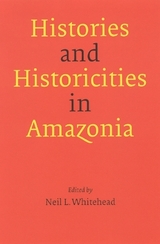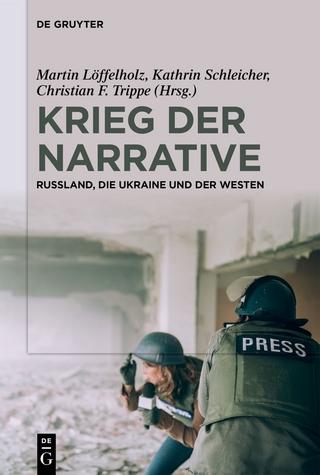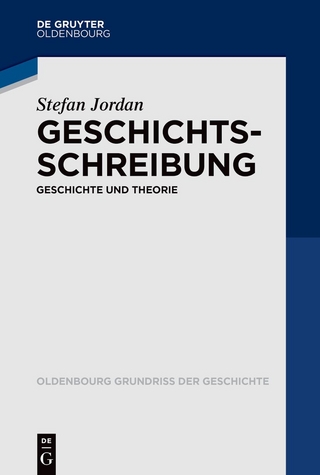
Histories and Historicities in Amazonia
Seiten
2003
University of Nebraska Press (Verlag)
978-0-8032-4805-2 (ISBN)
University of Nebraska Press (Verlag)
978-0-8032-4805-2 (ISBN)
- Titel erscheint in neuer Auflage
- Artikel merken
Zu diesem Artikel existiert eine Nachauflage
Illuminates how Native communities in the Amazon River basin use the past to make sense of their world and themselves. This title examines the history and historicity of Guaja, Wapishana, Dekuana, and Patamuna communities. It considers how natural and cultural features can help shape historical consciousness including landscape and rituals.
Anthropologist Neil L. Whitehead presents a collection of recent fieldwork and the latest theoretical perspectives that illuminate how a range of Native communities in the Amazon River basin, and those they encounter, use the past to make sense of their world and themselves. In recent decades, scholars have become increasingly aware of the role that the past plays in the construction of culture and identity. Not only can the past be represented and codified overtly in various ways and media as a history, it also operates more fundamentally and pervasively in cultures as a mode of consciousness or way of thinking about the world, a historicity.In addition to examining the particular foundations and significance of history and historicity in such communities as the Guaja, Wapishana, Dekuana, and Patamuna, the contributors to this volume consider more broadly how different natural and cultural features can help shape historical consciousness: landscape and territory; rituals such as feasting, genealogy, and kinship; and even the practice of archeology.
Also of interest are activist uses of historicity to promote and legitimize the cultural integrity and political agendas of Native communities, especially in contact situations past and present where multiple and often competing forms of history and historicity play important political roles in articulating relations between colonizers and the colonized.As this volume makes clear, understanding the powerful cultural role of the past helps scholars better appreciate the inherent dynamic quality of all cultures and recognize a rich resource of agency that can be used both to comprehend and to transform the present. Neil L. Whitehead is a professor of anthropology at the University of Wisconsin-Madison and the editor of "Ethnohistory". He is the author of "Dark Shamans: Kanaima and the Poetics of Violent Death" and coeditor (with Laura Rival) of "Beyond the Visible and the Material: Retrospect and Prospect in Amazonian Anthropology".
Anthropologist Neil L. Whitehead presents a collection of recent fieldwork and the latest theoretical perspectives that illuminate how a range of Native communities in the Amazon River basin, and those they encounter, use the past to make sense of their world and themselves. In recent decades, scholars have become increasingly aware of the role that the past plays in the construction of culture and identity. Not only can the past be represented and codified overtly in various ways and media as a history, it also operates more fundamentally and pervasively in cultures as a mode of consciousness or way of thinking about the world, a historicity.In addition to examining the particular foundations and significance of history and historicity in such communities as the Guaja, Wapishana, Dekuana, and Patamuna, the contributors to this volume consider more broadly how different natural and cultural features can help shape historical consciousness: landscape and territory; rituals such as feasting, genealogy, and kinship; and even the practice of archeology.
Also of interest are activist uses of historicity to promote and legitimize the cultural integrity and political agendas of Native communities, especially in contact situations past and present where multiple and often competing forms of history and historicity play important political roles in articulating relations between colonizers and the colonized.As this volume makes clear, understanding the powerful cultural role of the past helps scholars better appreciate the inherent dynamic quality of all cultures and recognize a rich resource of agency that can be used both to comprehend and to transform the present. Neil L. Whitehead is a professor of anthropology at the University of Wisconsin-Madison and the editor of "Ethnohistory". He is the author of "Dark Shamans: Kanaima and the Poetics of Violent Death" and coeditor (with Laura Rival) of "Beyond the Visible and the Material: Retrospect and Prospect in Amazonian Anthropology".
Neil L. Whitehead is a professor of anthropology at the University of Wisconsin-Madison and the editor of Ethnohistory. He is the author of Dark Shamans: Kanaima and the Poetics of Violent Death and coeditor (with Laura Rival) of Beyond the Visible and the Material: Retrospect and Prospect in Amazonian Anthropology.
| Verlagsort | Lincoln |
|---|---|
| Sprache | englisch |
| Maße | 150 x 250 mm |
| Gewicht | 666 g |
| Themenwelt | Geisteswissenschaften ► Geschichte ► Geschichtstheorie / Historik |
| Geisteswissenschaften ► Geschichte ► Regional- / Ländergeschichte | |
| Sozialwissenschaften ► Ethnologie | |
| Sozialwissenschaften ► Soziologie | |
| ISBN-10 | 0-8032-4805-9 / 0803248059 |
| ISBN-13 | 978-0-8032-4805-2 / 9780803248052 |
| Zustand | Neuware |
| Haben Sie eine Frage zum Produkt? |
Mehr entdecken
aus dem Bereich
aus dem Bereich
Russland, die Ukraine und der Westen
Buch | Softcover (2024)
De Gruyter (Verlag)
CHF 55,90
Geschichte und Theorie
Buch | Softcover (2024)
De Gruyter Oldenbourg (Verlag)
CHF 34,90
wie Irritationen historisches Denken anregen
Buch | Softcover (2024)
Kohlhammer (Verlag)
CHF 96,55



